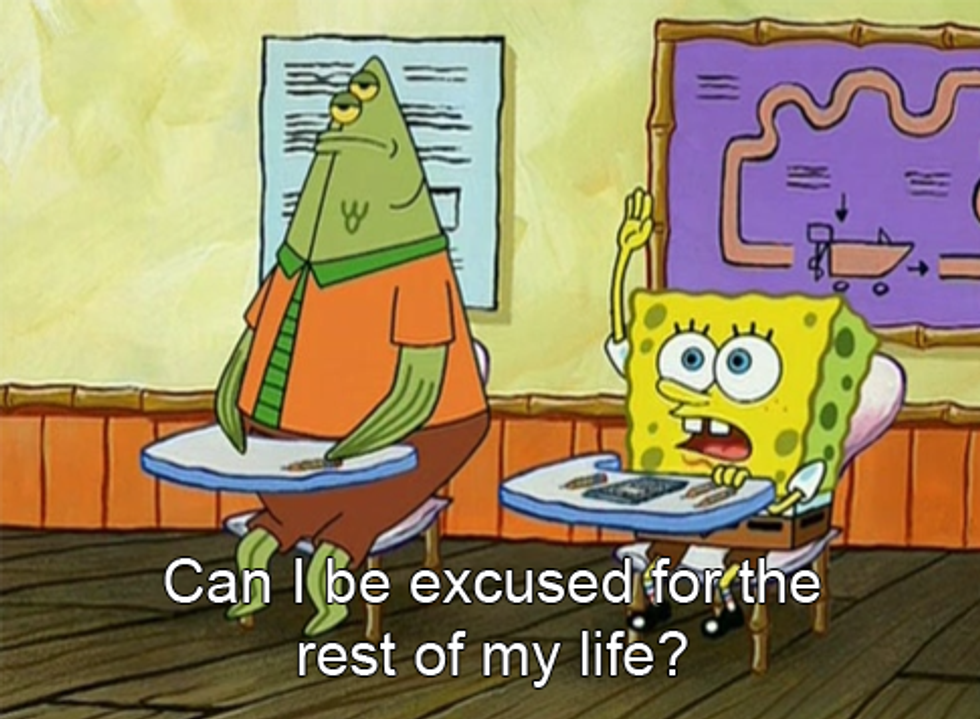When I started college in the fall of 2011, I was unmotivated. All I wanted to do was skip class and make spaghetti. So I didn’t really have much time for schooling. My classes felt like a waste of time and so did any time I spent on them at home.
I didn’t know what I wanted to do and I didn’t care.
When my mom finally pulled the plug on helping me through school, I knew I needed to get my act together, and since I enjoyed reading, I figured I’d try out English Education.
My whole life changed when I got into the midst of the education program.
First of all, my usual slacker attitude wouldn’t fly. D’s would not get me a degree, contrary to popular belief. The professors had immensely higher expectations and it was immediately evident that I had to buck up.
I’ve since read countless textbooks and written hundreds of papers and hundreds of lesson plans. I’ve spent entire days at the library. When required to do group work, I make sure to pull my fair share of the load and more—because the more I learn, the better.
Second, reading so much literature—there have been a couple semesters where I’ve purchased upwards of fifteen books—on how to teach all types of students has ingrained in me a sense of the importance of treating everyone with the same amount of respect, whether they are children or adults, whether they know English or whether they don’t.
The professors that I’ve been lucky enough to have, have not only taught me how to teach and how to reach students, but they’ve taught me more humanity than I could’ve hoped to have otherwise.
I have always been one to be concerned about whether or not other people are happy. But what I learned in my education classes went beyond that. What people sometimes don’t realize is that the people they pass on the streets, or in my case, the kids that come in and out of the classroom, have lives outside of what we see. And these lives dictate how they act when they cross our paths.
For example, maybe a student is sleeping in class for the fifth day in a row. Instead of getting angry and punishing the student like I may have done a few years ago, I would think to myself, what might that student be going through at home?
Maybe the student’s dad abandoned the family, maybe the mom works three jobs in order to afford rent, maybe that student has to cook dinner for his or her four siblings and put them to bed before even starting on their homework. This stuff happens more than an average person would think.
I’ve come to have an open mind when I feel I’m being mistreated, whether it’s in the classroom or waiting in line at the neighborhood grocery store. Everyone has a story and everyone struggles.
Lastly, I have learned that fair isn’t always equal. Everyone wants to preach about how all students should be treated equally. Well, I’m here to call bullshit.
In reality, every student should be treated fairly. Let’s say that there are two students—one has dyslexia, one does not—and they are both given twenty minutes to read an article. The student with dyslexia might not finish, but at least they were treated fairly, right? Wrong. This sort of mentality can be transferred to other parts of my life as well.
Not only did I learn about literature from all corners of the world, how to teach all kinds of students, how to deal with parents, and how to write lessons, but I learned how to genuinely care for all people.
I am now a hardworking humanitarian who understands the struggle of real life and can handle whatever is thrown her way—and I have education to thank for that.






















